It’s been a whirlwind of Christmas spirit, old-world beauty, and travel fun! I’d like to share a few highlights in this second mini-blog post from our European Christmas Market tour. See the first blog post, Postcards from Germany #1, for the background on this grand adventure.
From Lauscha, Germany we drove to Kliny, Czechia (aka Czech Republic) where we encountered our first, and only, snowfall. It was a winter wonderland!
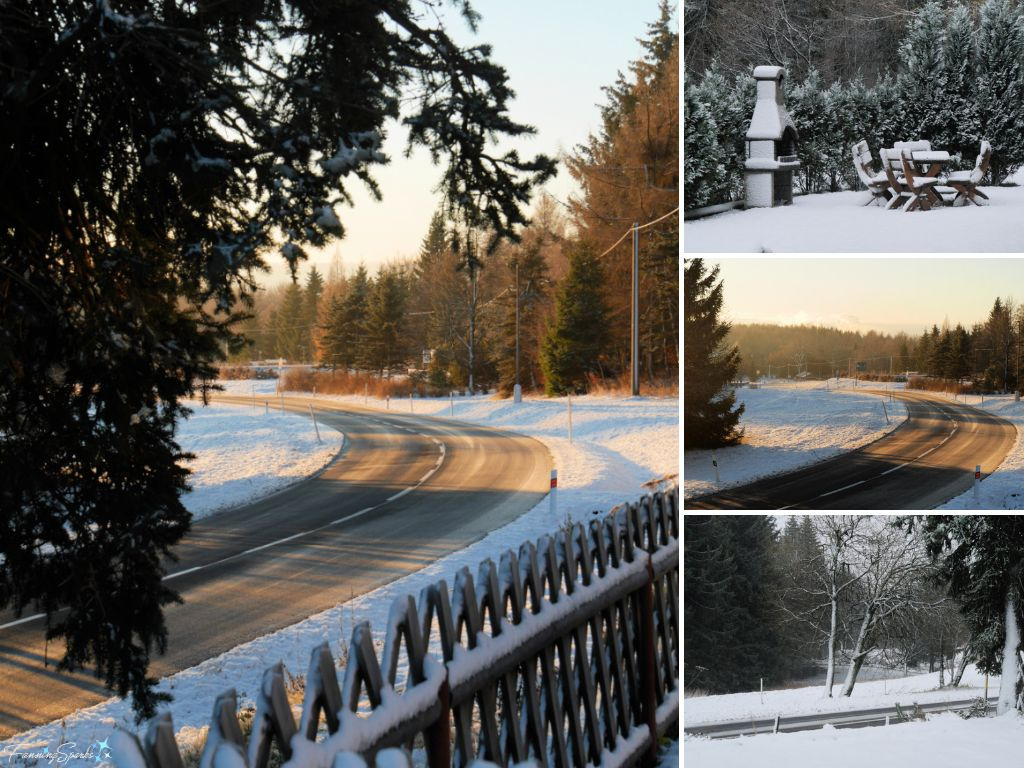
Our destination was the small mountain town of Seiffen, Germany which is close to the Czechia/Germany border. Seiffen is famous for handcrafted wooden toys and Christmas ornaments and is often referred to as Spielzeugdorf (Toy Village).
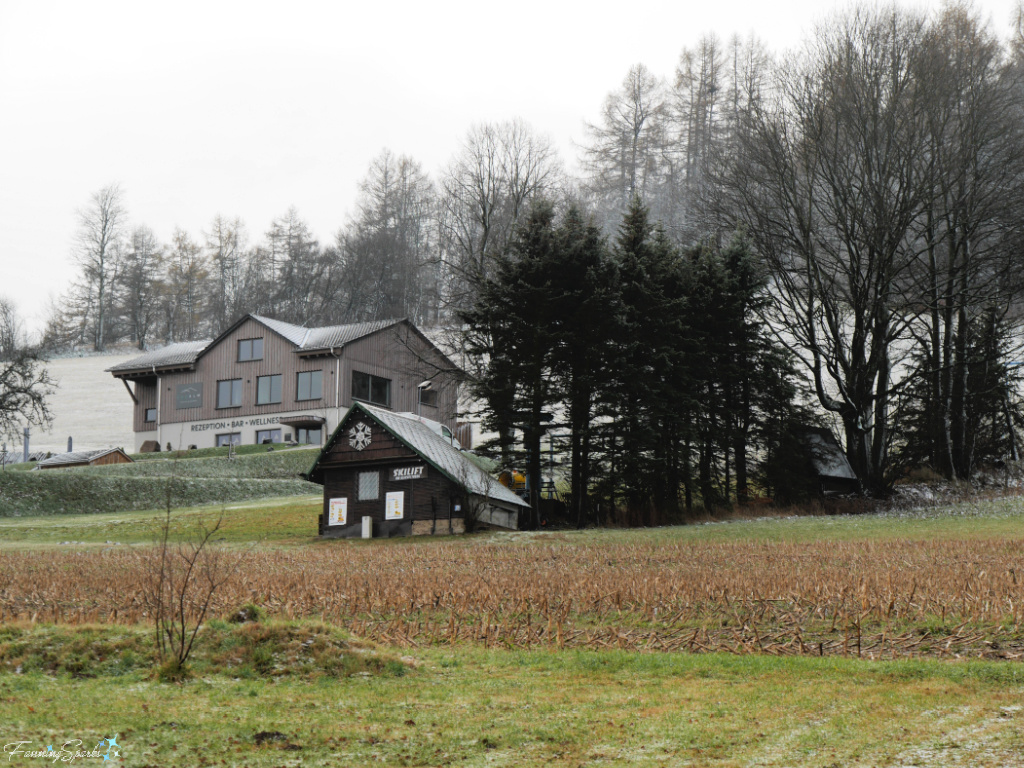
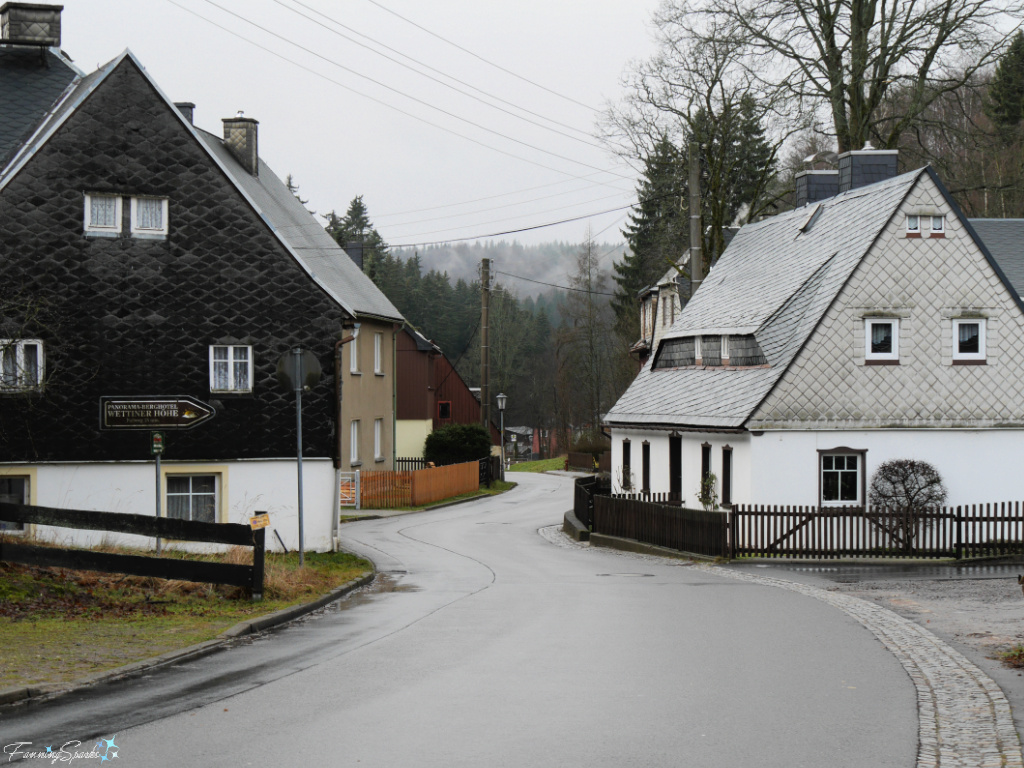
A short walk through the village leads to the splendid Bergkirche Seiffen, the Seiffen mountain church, with its unusual octagonal shape, butter-yellow color and late-Baroque architecture.
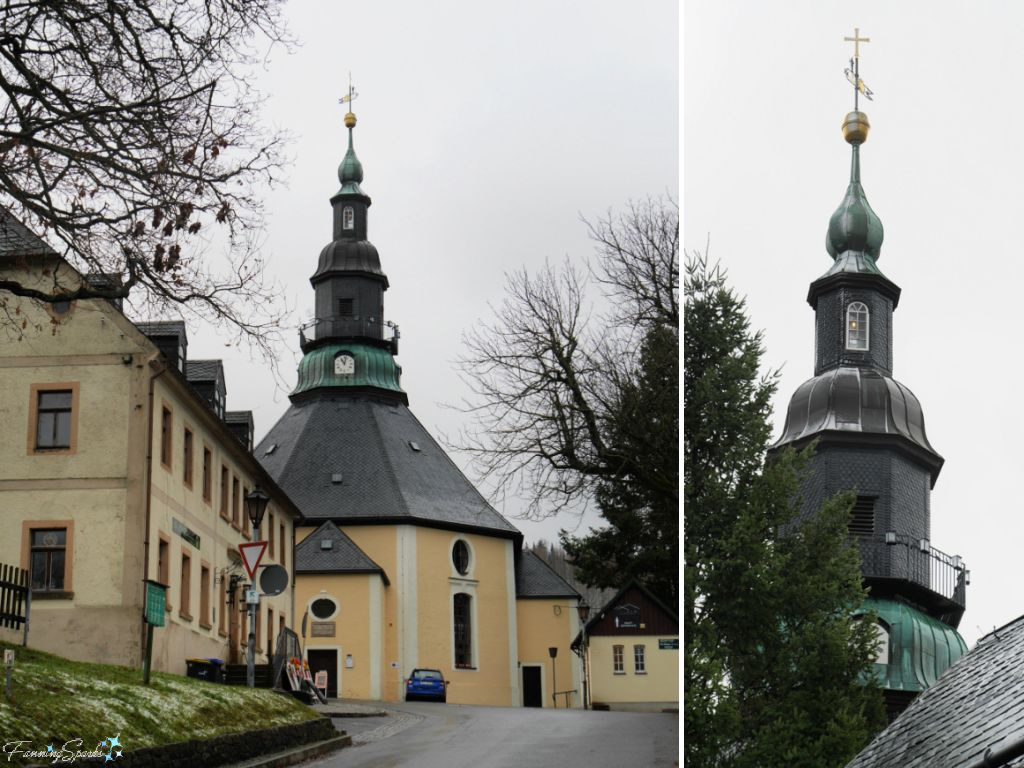
Evidence of the citizens’ artistic talents can be seen throughout the town.
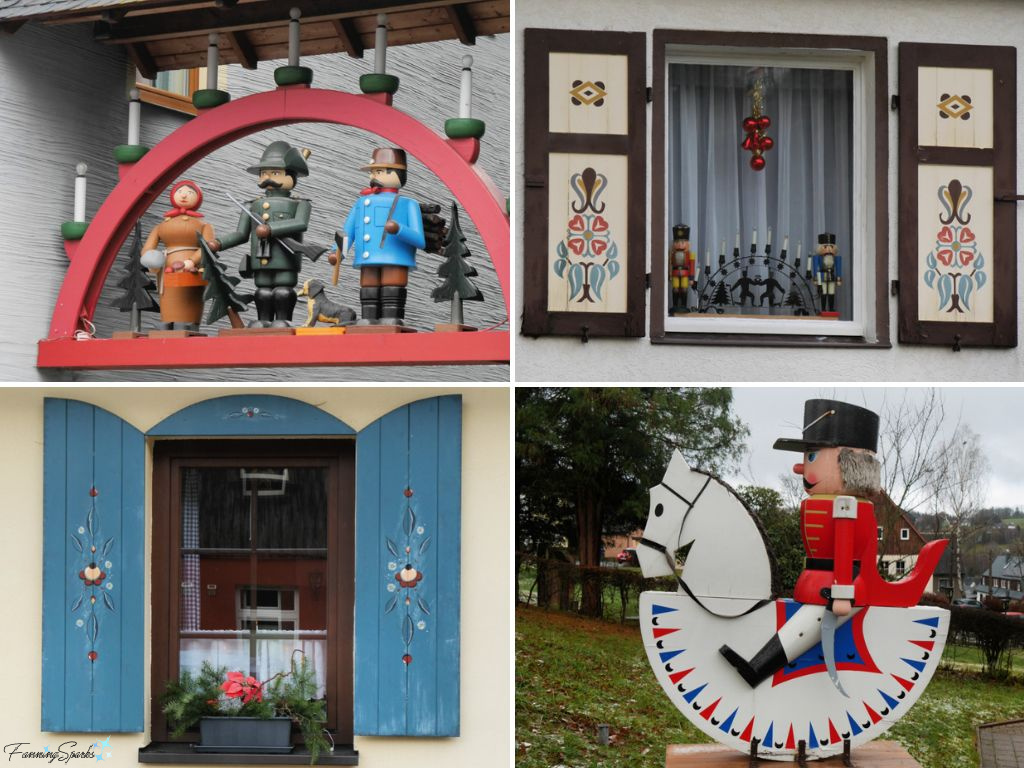
I’ll save the details for a future post but, suffice to say, Seiffen has earned its reputation for fine woodworking. Check out this gorgeous three-tier, Christmas pyramid we saw on display in one of the shops.
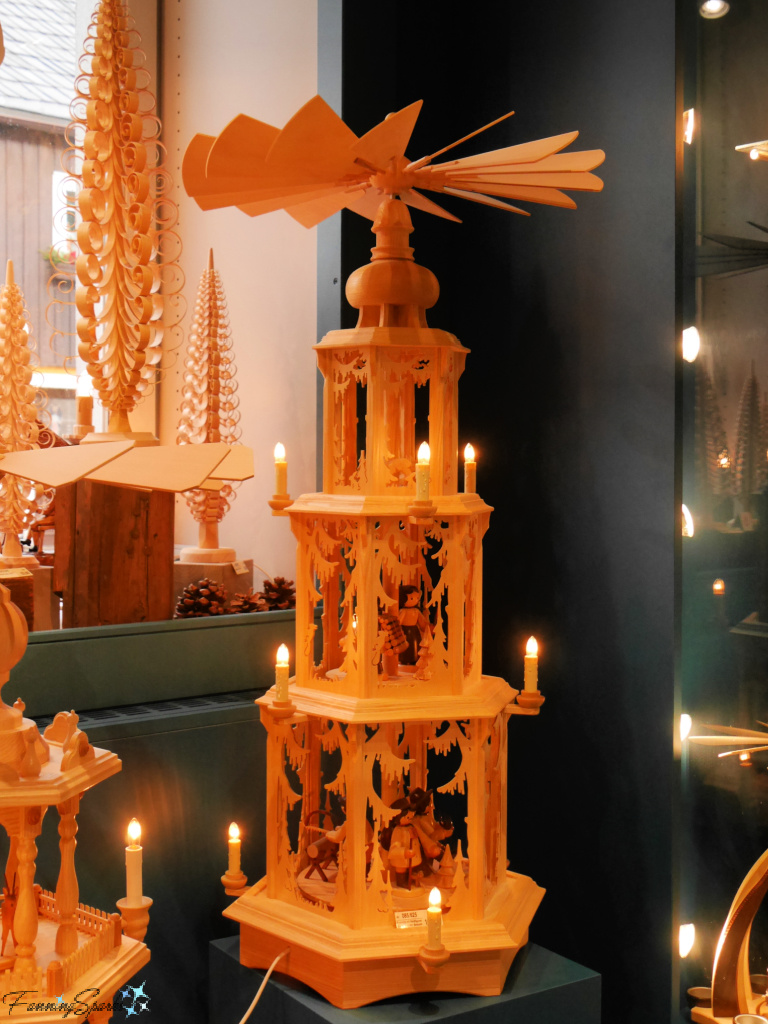
Handcrafted incense smokers, fashioned into traditionally-dressed workers, are also popular.
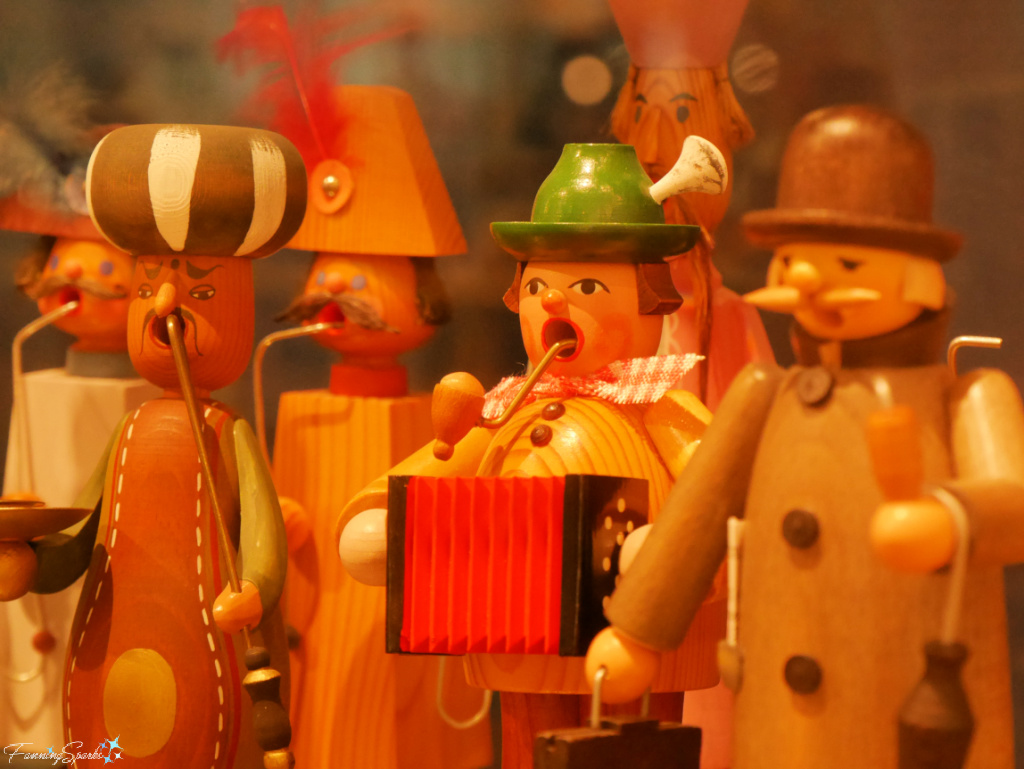
Nativity scenes with beautifully hand-crafted, wooden figures like those on this extra-large, outdoor pyramid showcase the woodturner’s skills.
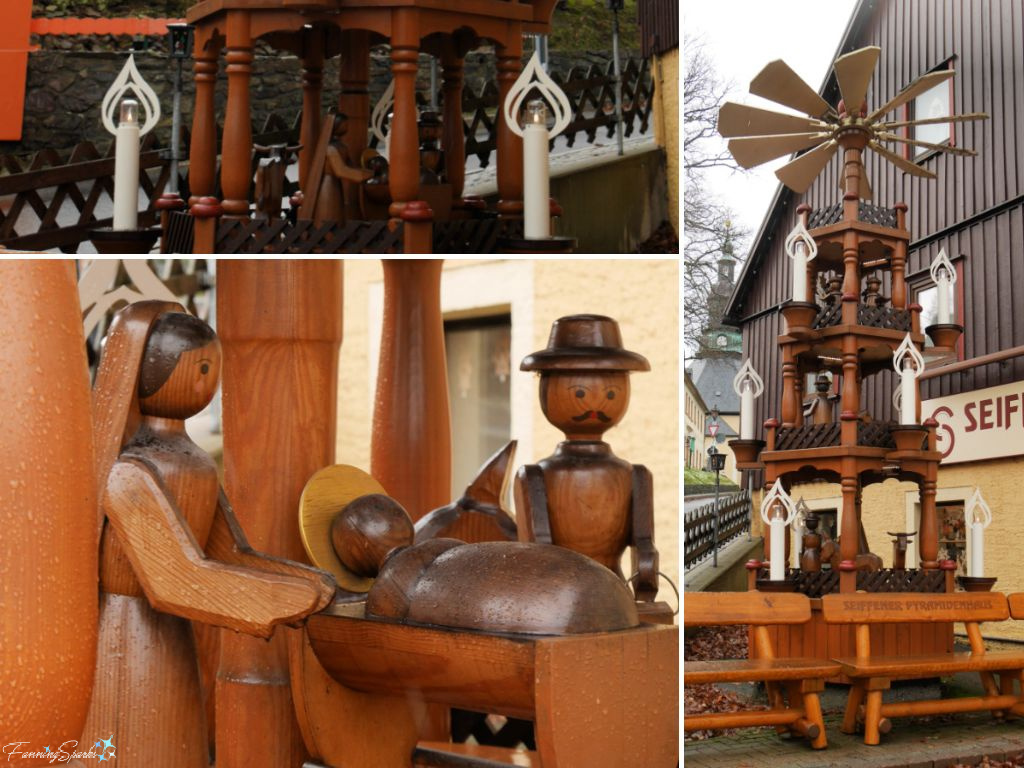
The stunningly beautiful city of Dresden, with its spectacular baroque and rococo architecture, was our next stop. Despite its tumultuous past, including intense aerial bombing during World War II and subsequent extensive reconstruction, it is still obvious why Dresden’s city center was dubbed the “Jewel Box”.
At the heart of all the grandeur is Zwinger Palace, a remarkable structure originally built as a venue for noble tournaments and court games back in 1709. Today, this jaw-droppingly beautiful, palatial complex houses an impressive selection of museums.
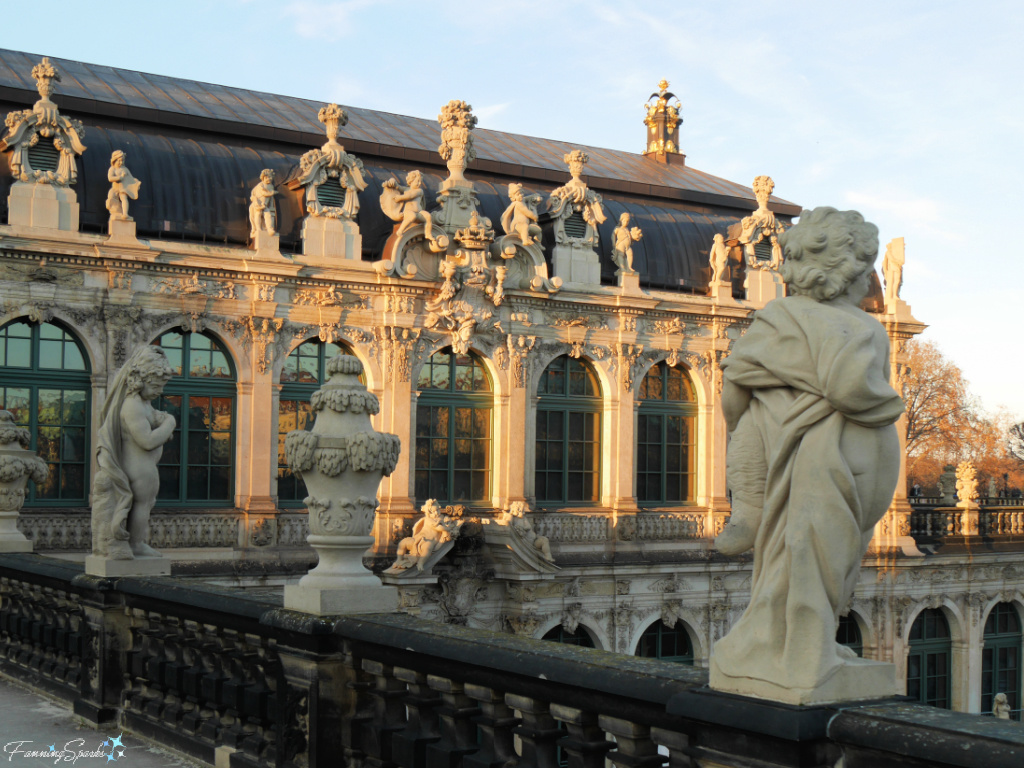
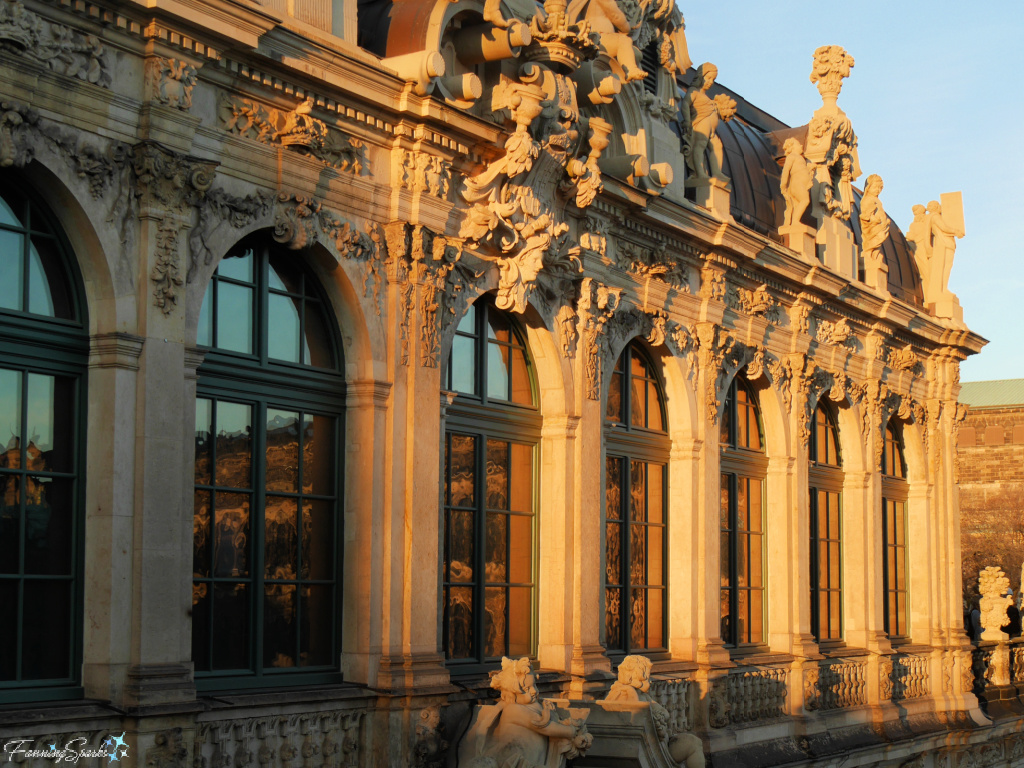
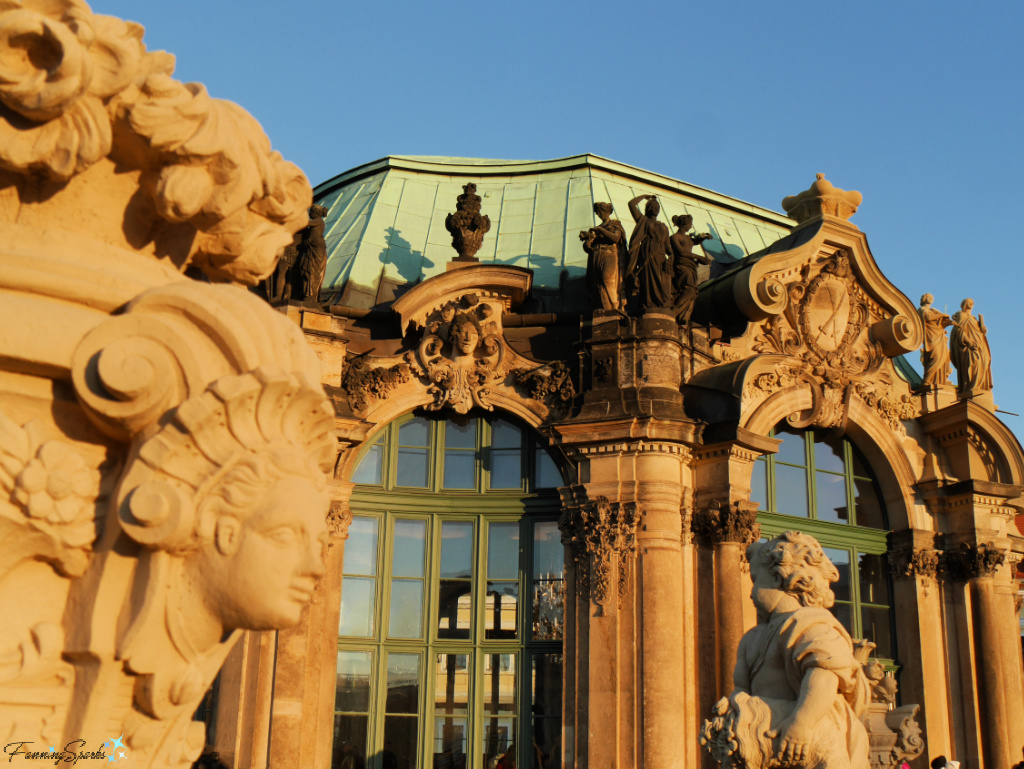
The awe-inspiring Kronentor (Crown Gate) at Zwinger Palace is arguably the most beautiful element in the entire complex―especially with the afternoon sun highlighting the gold of the Polish royal crown at its peak.
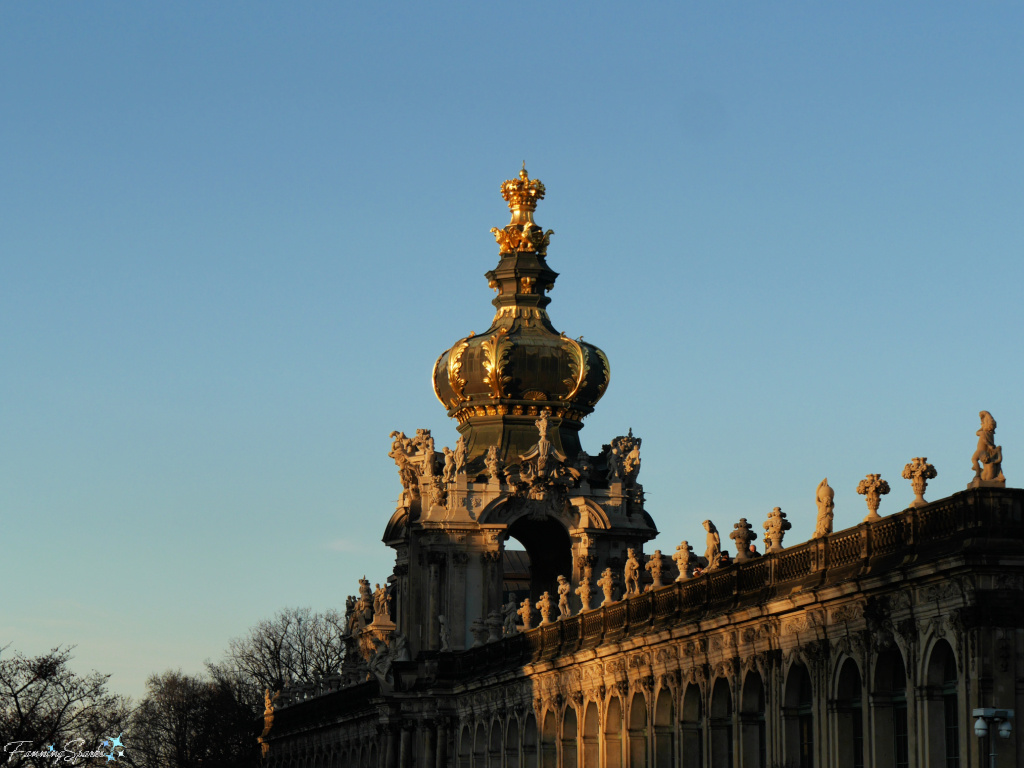
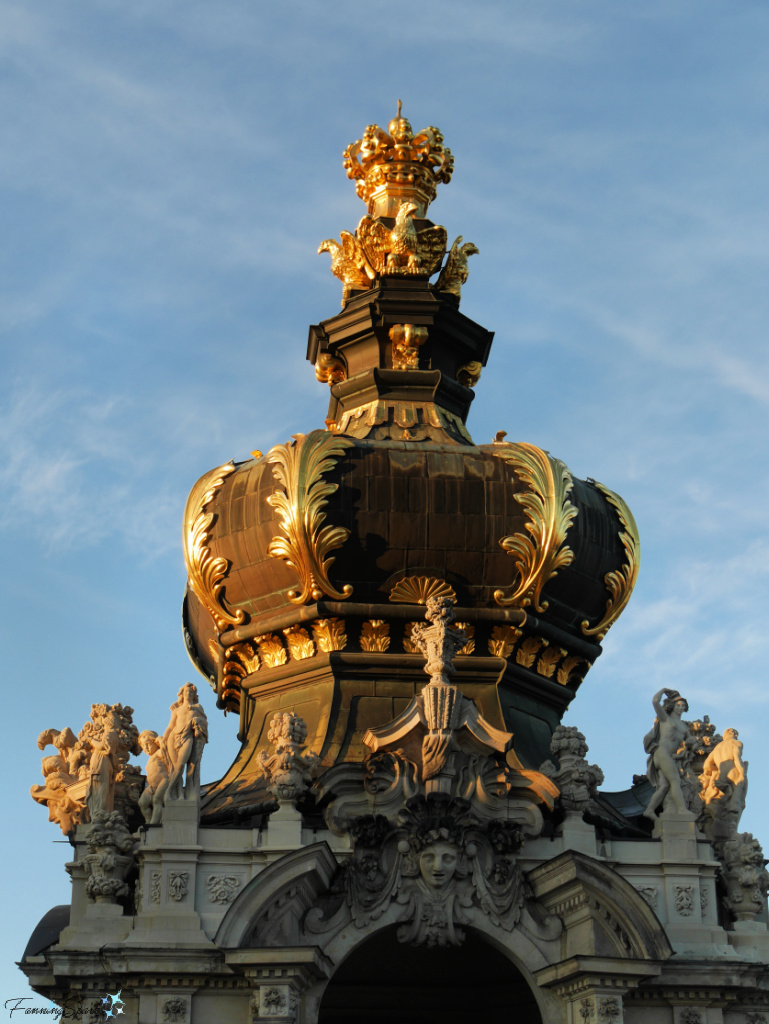
Like most major cities in the Old World, Dresden is located on a waterway―the Elbe River. The Elbe is one of the major rivers of central Europe running from Czechia through Germany.
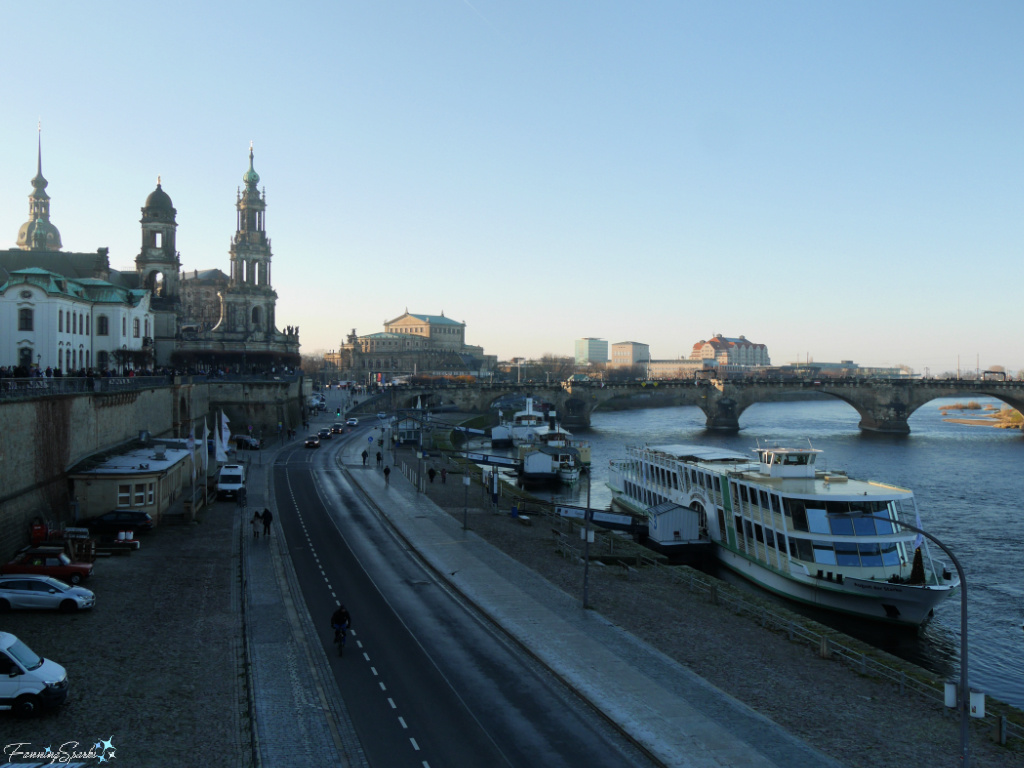
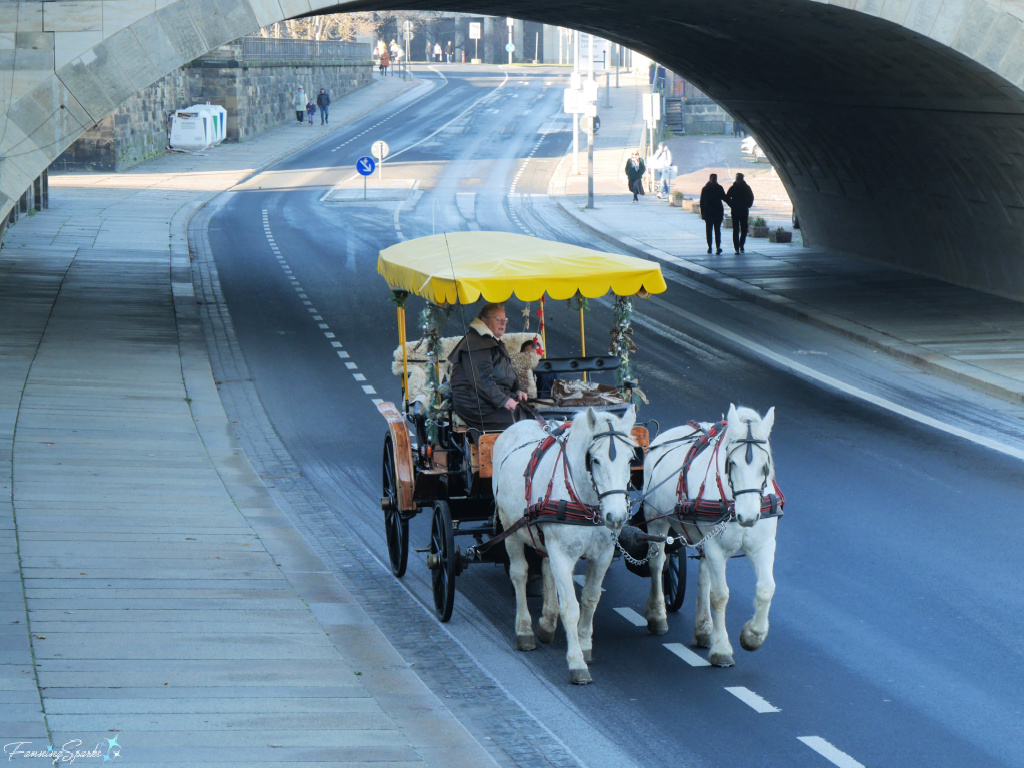
In the midst of all Dresden’s architectural grandeur were its joyous Christmas markets. Pictured below is the Augustusmarkt, located across the Elbe River in the Neustadt area, with the steeple of the Dreikönigskirche (Three Kings’ Church) and a colorfully-lit Ferris wheel creating an unforgettable view.
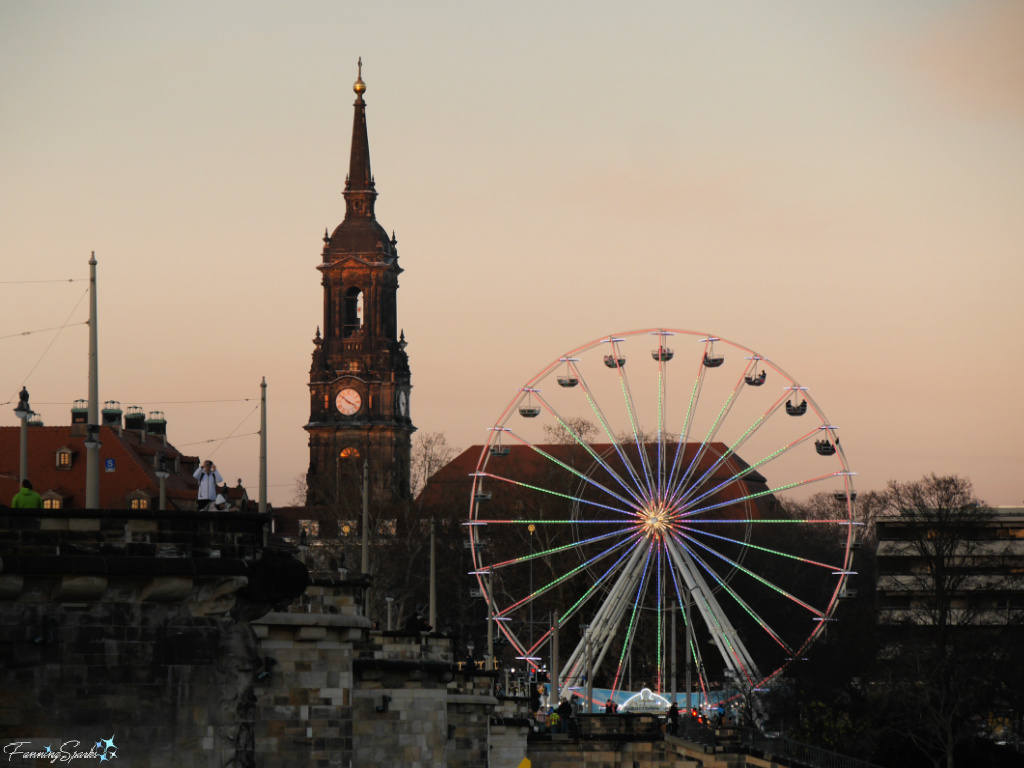
The scene from the tower of the Kreuzkirche (Church of the Holy Cross) was equally spellbinding and, debatably, worth climbing the 259 steps to get there!
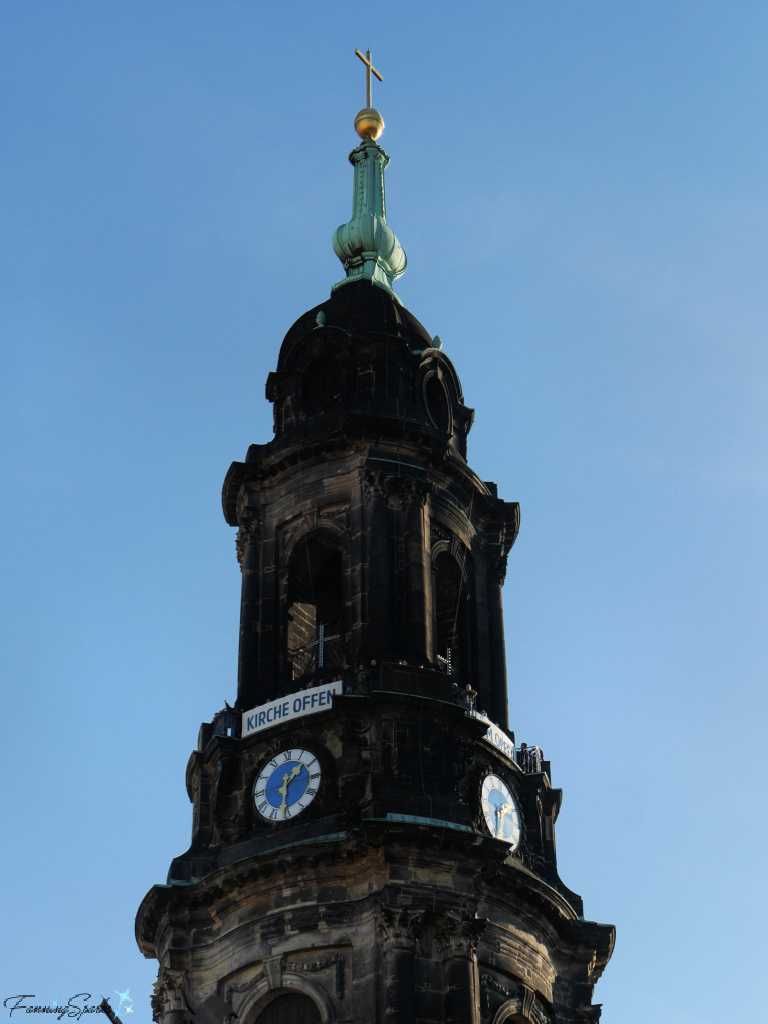
Directly below the Kreuzkirche tower was the Striezelmarkt, Dresden’s iconic market, which is arguably the oldest Christmas market in Germany.
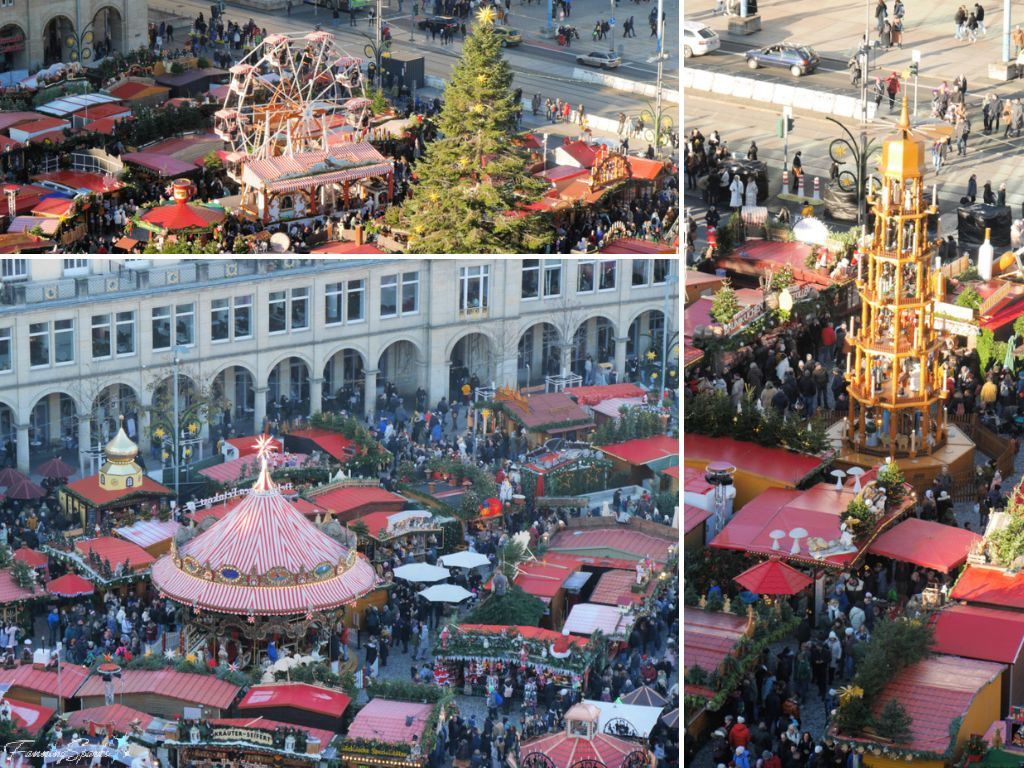
The Dresden Christmas markets were beautifully decorated and packed with market stalls. There were even vendors from Seiffen, such as Spielwarenmacher Günther shown below, who specialized in genuine Erzgebirge products such as wooden toys, smokers, pyramids, tree decorations and candle arches.
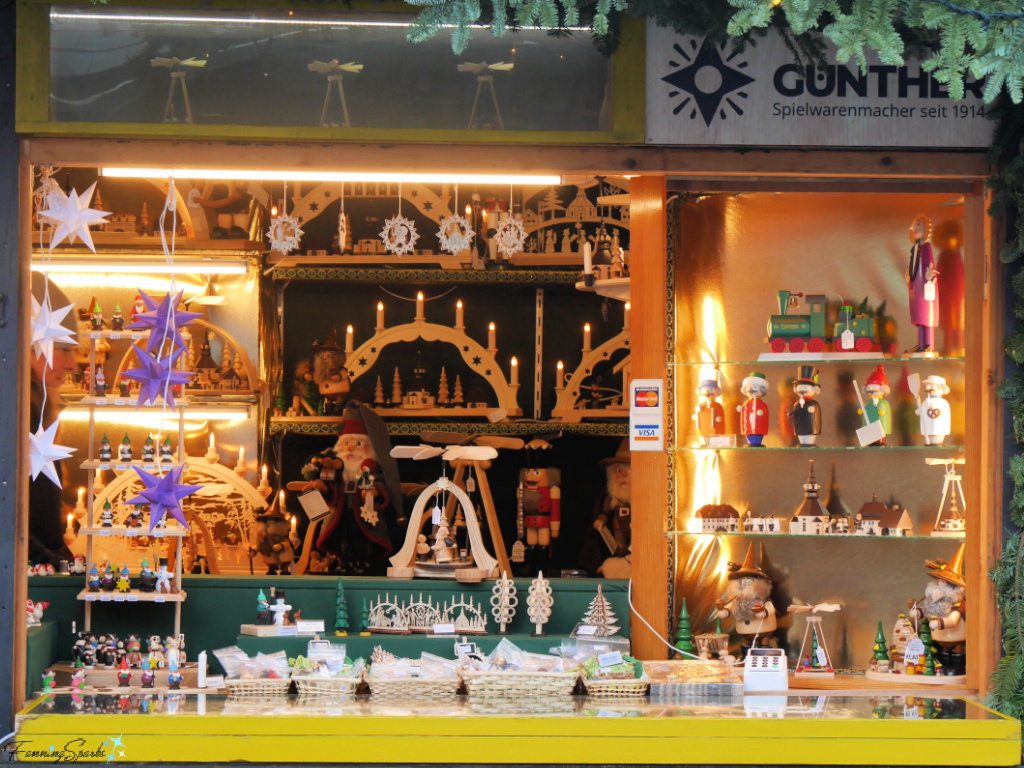
We also managed to locate a couple of Dresden’s lesser-known destinations―the Kunsthofpassage (Art Passageways) are a network of hidden courtyards with art installations on the building exteriors. One of the courtyards, the Hof der Elemente (Court of the Elements), features two different wall treatments by artists Annette Paul, Christoph Roßner and André Tempel. On one wall, oversized drain pipes, dressed up as musical instructions, twist and turn down the façade of the building.
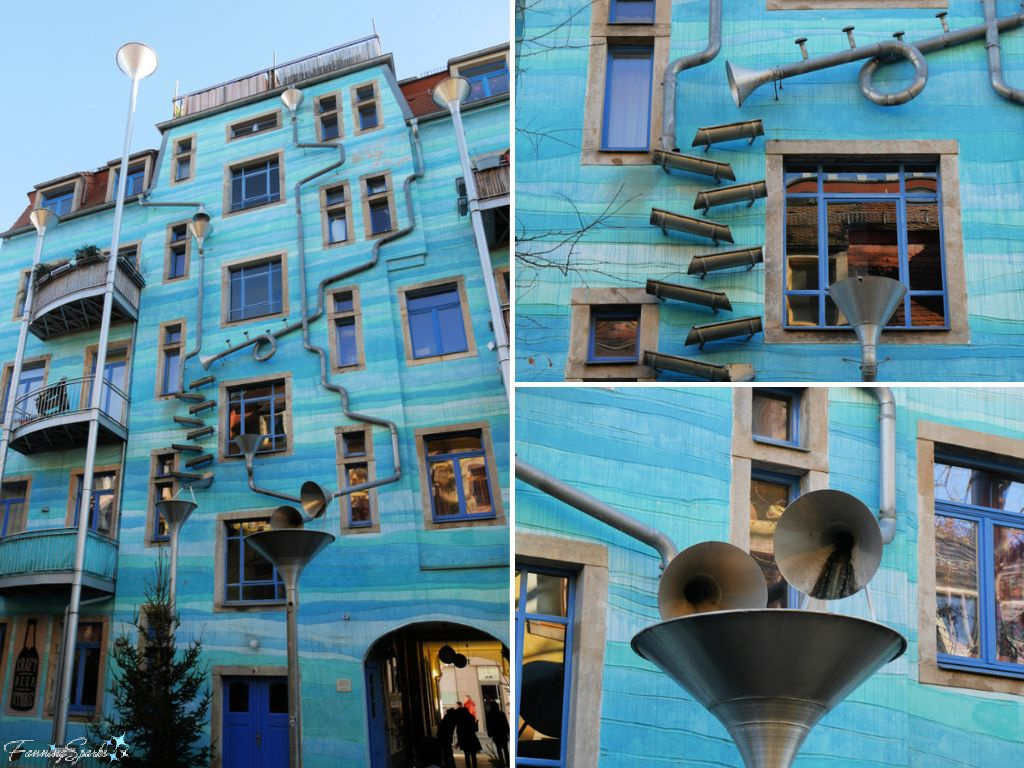
On the opposite building, a sunny yellow is decorated with what appears to be wind-blown sheets of golden yellow aluminum.
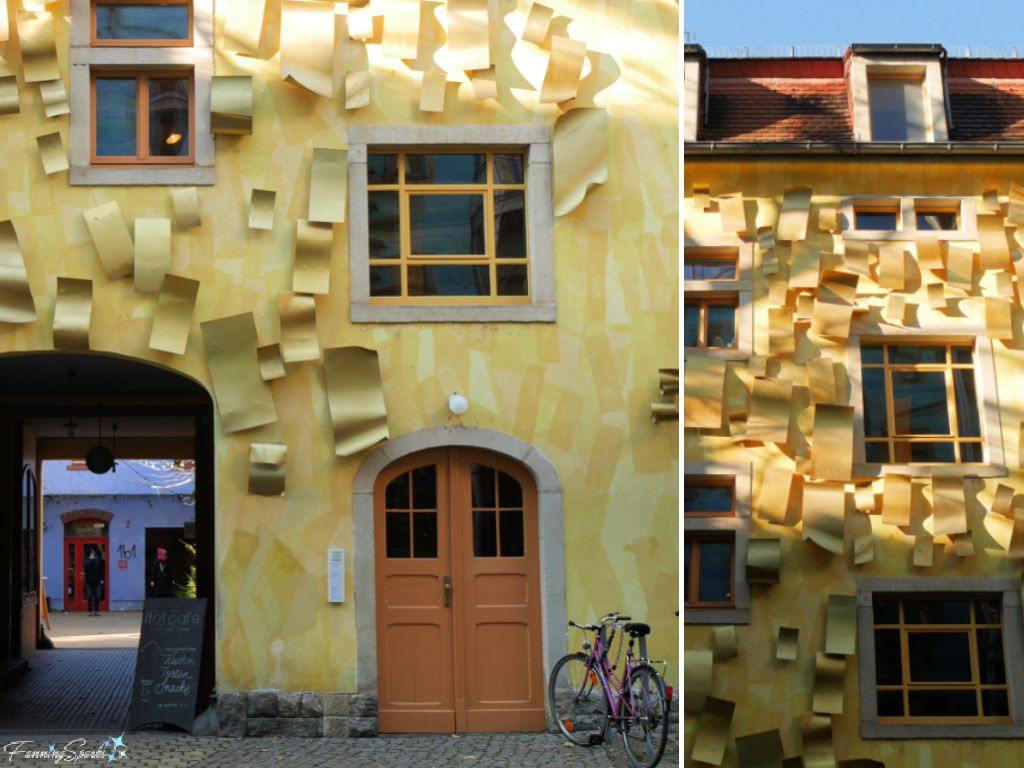
Nearby, we visited another hidden gem. The Dresdner Molkerei Gebrüder Pfund has the honor of being declared the “most beautiful dairy shop in the world” by the Guinness Book of Records. Every surface is covered in beautiful, hand-painted tiles from Villeroy & Boch dating back to 1892.
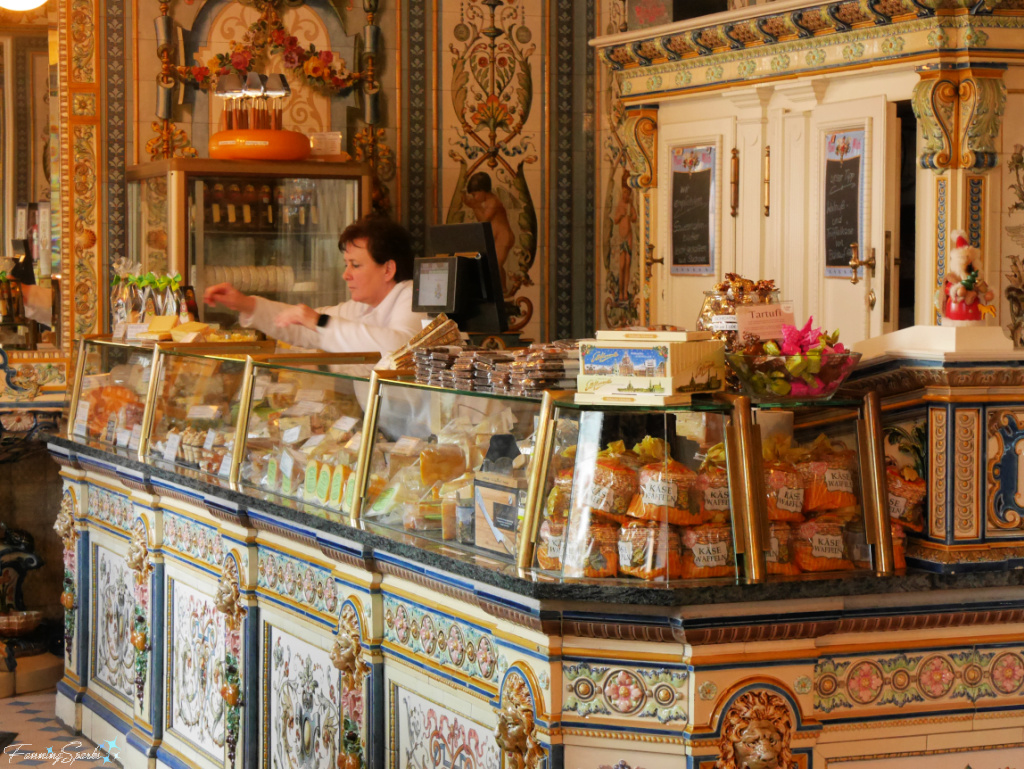
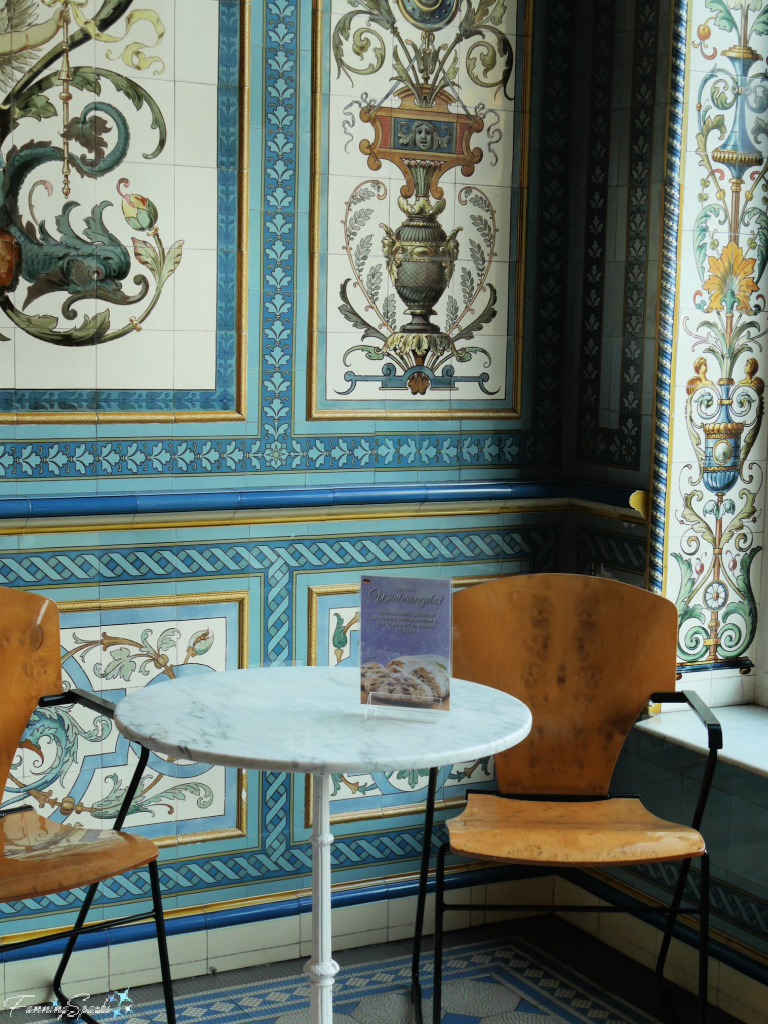
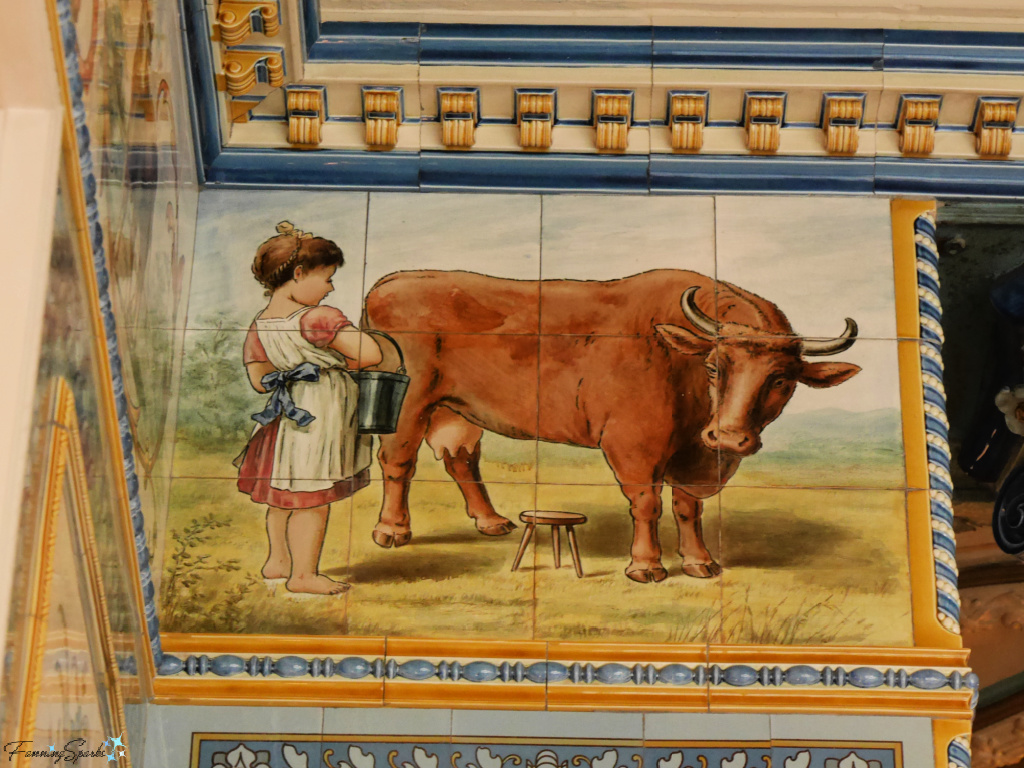
Good travel destinations leave you wanting more time to explore and enjoy―both Seiffen and Dresden definitely did that!
I hope you’re enjoying these mini-blog posts from our European Christmas Market Tour! See last week’s blog post, Postcards from Germany #1, for the first installment in this series and be sure to check back next week for the final report.


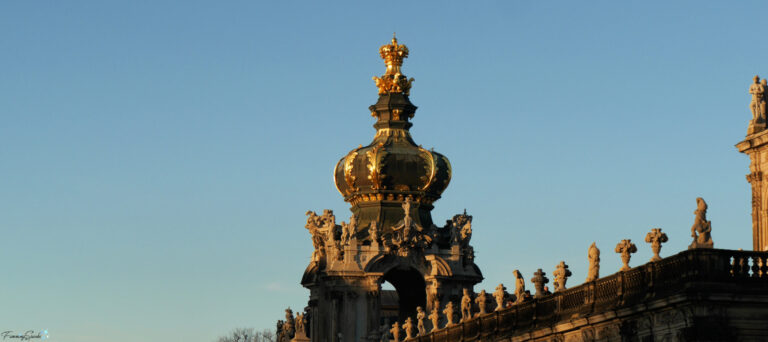


Comments are closed.